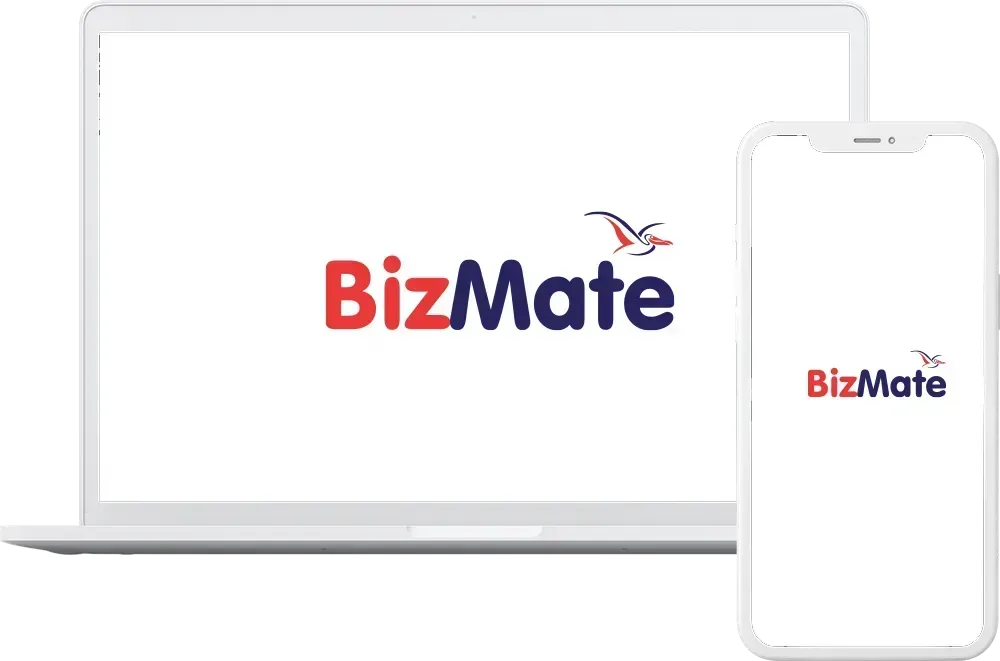

BLOGS
BIZMATE BY DOHO DIGITAL BLOGS

Strategies for Effective Crisis Management in Agency Marketing
Crises in agency marketing can strike unexpectedly, challenging even the most prepared teams. Effective crisis management is crucial for maintaining brand reputation and client trust during these turbulent times. This guide explores key strategies to navigate crises with confidence, ensuring a swift and efficient response. From establishing clear communication protocols to leveraging data-driven insights, discover practical approaches to safeguard your agency’s interests. Understanding and implementing these strategies can transform potential setbacks into opportunities for growth and resilience. Dive in to learn how to master crisis management and steer your agency through challenging waters with agility and finesse.
Building a Robust Crisis Response Plan
Creating a robust crisis response plan is crucial for handling unexpected disruptions effectively. A well-structured plan helps manage crises efficiently, ensuring that every team member knows their role and responsibilities.
Identify Potential Risks: Begin by identifying all possible risks and scenarios that could impact your agency. This includes operational, reputational, and financial risks. Understanding these risks will guide the development of comprehensive response strategies.
Develop Clear Protocols: Establish clear communication protocols and procedures for addressing different types of crises. Ensure that everyone knows how to report issues, who to contact, and how information will be disseminated.
Assign Roles and Responsibilities: Designate specific roles and responsibilities for team members during a crisis. Assigning tasks ensures that everyone knows their role, which helps streamline the response and minimize confusion.
Create a Communication Plan: Develop a communication plan that includes messaging strategies for both internal and external stakeholders. Regular updates and clear messaging are crucial for maintaining trust and managing the situation effectively.
Test and Update Regularly: Regularly test and update the crisis response plan to ensure its effectiveness. Conduct simulations and review the plan periodically to incorporate new risks and improve response strategies.
By preparing thoroughly and regularly updating the plan, agencies can navigate crises with confidence and maintain stability.

Communicating Effectively During a Crisis
In a crisis, communication is everything. Clear and transparent messaging can make the difference between resolving an issue smoothly and escalating it further. Start by crafting concise, honest updates about the situation and the steps being taken to address it. Ensure that communication is timely to prevent misinformation and rumors from spreading. Designate spokespersons who can handle media inquiries and provide updates with authority and confidence. Internally, keep employees informed to maintain morale and prevent uncertainty. Always be ready to listen and address concerns from all stakeholders, including clients and partners, to build trust and demonstrate commitment to resolving the issue.
Leveraging Social Media for Crisis Control
Social media is a powerful tool in managing crises, offering real-time communication with both clients and the public. Use social platforms to disseminate accurate information quickly, which can help counteract false narratives and control the narrative around the crisis. Engage directly with your audience by addressing their concerns and providing updates. Monitor social media channels for emerging trends and sentiment, allowing for swift responses to potential issues before they escalate. Be transparent and authentic in your interactions, which can help rebuild trust and show your agency’s commitment to resolving the situation.
Assessing and Minimising Crisis Impact
Understanding the potential impact of a crisis on your agency is crucial for effective management. Begin by conducting a thorough impact assessment to evaluate how the crisis affects various aspects of your business, from financial stability to brand reputation. Prioritize the most critical areas that need immediate attention and allocate resources accordingly. Develop strategies to mitigate negative effects, such as implementing contingency plans or seeking external support if necessary. Continuously monitor the situation to adjust your approach as needed, ensuring that your response remains relevant and effective. By proactively managing and minimizing the impact, you can safeguard your agency’s interests and maintain operational continuity.
Engaging Stakeholders in Crisis Management
Engaging stakeholders effectively during a crisis is essential for maintaining support and managing perceptions. Identify key stakeholders, including clients, employees, investors, and partners, and tailor your communication strategies to address their specific concerns. Keep them informed with regular updates on the situation and the steps being taken to resolve it. Encourage feedback and be open to addressing any issues they raise. Building strong relationships with stakeholders before a crisis occurs can also facilitate smoother communication and support during challenging times. By keeping stakeholders engaged and involved, you can foster trust and collaboration, helping to navigate the crisis more effectively.
Training Teams for Crisis Situations
Effective crisis management begins with well-prepared teams. Training is essential to ensure that every team member understands their role and can act decisively under pressure. By investing in thorough training, teams become equipped to handle crises with confidence and competence.
Conduct Regular Drills: Schedule frequent simulation exercises to practice responding to various crisis scenarios. These drills help teams familiarize themselves with procedures and build muscle memory for quick, effective responses.
Develop Clear Protocols: Create detailed response protocols outlining each team member's responsibilities. Clear guidelines reduce confusion during a crisis and ensure that everyone knows their specific tasks and how to execute them.
Provide Role-Specific Training: Tailor training programs to individual roles within the team. Specialized training for different positions ensures that each member is prepared to handle their unique responsibilities during a crisis.
Incorporate Feedback Mechanisms: After each drill or real-life event, gather feedback from participants to identify areas for improvement. Use this input to refine training programs and address any gaps in skills or knowledge.
Update Training Regularly: Crisis management techniques and tools evolve, so it's crucial to update training materials regularly. Incorporate new best practices and lessons learned from past experiences to keep the team prepared for current challenges.
Regular practice and up-to-date training enable teams to handle crises effectively, safeguarding operations and enhancing resilience.
Monitoring and Analyzing Crisis Metrics
Tracking and analyzing metrics during a crisis is crucial for understanding the effectiveness of your response and making informed decisions. Identify key performance indicators (KPIs) relevant to the crisis, such as response time, sentiment analysis, and stakeholder feedback. Use these metrics to gauge the impact of your actions and adjust strategies as needed. Implement tools and systems to collect and analyze data in real time, providing insights into how the crisis is unfolding and how your response is performing. Regularly review and assess these metrics to identify areas for improvement and ensure that your crisis management efforts are aligned with your overall objectives.
Navigating Client Relationships During Disruptions
Maintaining strong client relationships during a crisis requires transparent communication and proactive engagement. Reach out to clients early and provide clear updates on how the crisis may impact their projects or services. Reassure them of your commitment to resolving the issue and offer solutions or alternatives where possible. Being open and responsive to their concerns can help build trust and demonstrate your dedication to their needs. Additionally, provide regular updates to keep clients informed and involved in the process. By managing client relationships effectively, you can maintain confidence and loyalty, even in the face of adversity.
Implementing Quick Recovery Strategies
Recovery from a crisis requires swift and strategic action to restore normal operations and mitigate long-term damage. Develop a recovery plan that outlines the steps needed to return to business as usual, including addressing any immediate operational issues and restoring client services. Focus on rebuilding your brand and reputation through positive messaging and demonstrating improvements. Prioritize actions that will have the most significant impact on recovery and allocate resources effectively to ensure a smooth transition. Monitor the progress of recovery efforts and adjust strategies as needed to address any ongoing challenges. Quick and effective recovery can help your agency regain stability and confidence.

Learning from Crisis Management Experiences
Learning from crisis management experiences is crucial for improving future responses and building resilience. Evaluating what worked and what didn’t allows agencies to refine strategies and strengthen their crisis preparedness.
Review Crisis Outcomes: Examine the overall results of the crisis management efforts. Identify successful tactics and areas that need improvement to enhance future responses. This helps in understanding the effectiveness of the strategies employed.
Gather Team Feedback: Collect insights from team members involved in the crisis. Their perspectives provide valuable information on the challenges faced and the effectiveness of the communication and decision-making processes.
Analyze Stakeholder Reactions: Evaluate how stakeholders, including clients and partners, responded to the crisis management efforts. Understanding their concerns and satisfaction levels can guide improvements in engagement and communication strategies.
Update Response Plans: Based on the lessons learned, revise crisis response plans and protocols. Ensure that new strategies address the identified gaps and incorporate best practices for more effective future management.
Conduct Training Sessions: Use insights gained from the crisis to update training programs. Regularly train teams on revised strategies and scenarios to ensure they are prepared for future challenges with enhanced skills and knowledge.
Incorporating these lessons into future plans strengthens an agency’s ability to handle crises more effectively, fostering resilience and better preparedness.
Conclusion
Mastering effective crisis management in agency marketing is essential for navigating the unexpected with confidence. By building a robust response plan, communicating clearly, leveraging social media, and engaging stakeholders, agencies can mitigate impacts and recover swiftly. Continuous training and monitoring ensure preparedness and resilience. For tailored strategies and expert guidance in crisis management, connect with Doho Digital. Harness their expertise to enhance your agency’s crisis response and safeguard your brand’s reputation.
Don’t wait until a crisis strikes—contact Doho Digital at (949)-787-3200 to start building a stronger, more resilient agency today.






